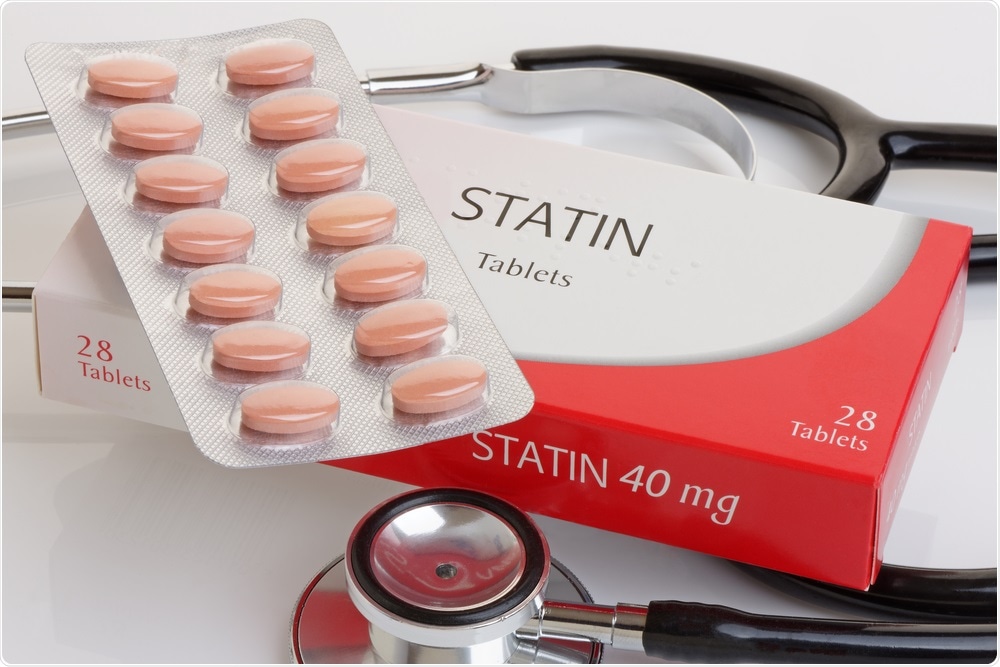According to a study recently published in the eLife journal, cholesterol-lowering drugs, known as statins, may lower cancer risk in humans via a pathway unassociated with cholesterol.

Image Credit: roger ashford/Shutterstock.com
Statins decrease the levels of LDL-cholesterol, the supposed “bad” cholesterol, by blocking an enzyme known as HMG-CoA-reductase (HMGCR). Clinical trials have already demonstrated convincing proof that statins decrease the risk of cardiovascular diseases, including heart attacks. However, proof relating to the potential effect of statins to decrease the risk of cancer is not very clear.
Previous laboratory studies have suggested that lipids including cholesterol play a role in the development of cancer, and that statins inhibit cancer development. However, no trials have been designed to assess the role of statins for cancer prevention in clinical practice. We decided to assess the potential effect of statin therapy on cancer risk using evidence from human genetics.”
Paul Carter, Study Lead Author and Cardiology Academic Clinical Fellow, Department of Health and Primary Care, University of Cambridge
To achieve this, Carter and the team investigated genetic variants that imitate the impact of statins by employing a method called Mendelian randomization in UK Biobank—a large study that focuses on UK residents by tracking the diagnosis and treatment of several serious illnesses.
Mendelian randomization evaluates the connection between genetically predicted levels of a risk factor and the outcome of a disease, to estimate the extent to which that risk factor is responsible for the outcome.
For instance, it can compare the risk of cancer in individuals who inherit a genetic predisposition to low or high levels of cholesterol, to predict whether cancer risk can be reduced by lowering the cholesterol levels. The research work is the first-ever Mendelian randomization analysis of lipid subtypes for a variety of cancers across the human body.
The researchers obtained links of lipid-associated genetic variants with the risk of overall cancer and 22 types of cancer for 367,703 persons in UK Biobank. A total of 75,037 of these persons individuals had a cancer event.
The researchers’ analysis showed that variants in the HMGCR gene region, which constitute proxies for statin treatment, were linked to the overall risk of cancer, indicating that statins could reduce the overall risk of cancer.
Fascinatingly, variants in gene regions representing other cholesterol-lowering therapies that work in different ways to statins were not linked to cancer risk, and genetically predicted that LDL-cholesterol was not linked to the overall cancer risk.
Taken together, these results suggest that inhibiting HMGCR with statins may help reduce cancer risk through non-lipid lowering mechanisms, and that this role may apply across cancer sites.”
Paul Carter, Study Lead Author and Cardiology Academic Clinical Fellow, Department of Health and Primary Care, University of Cambridge
Carter continued, “This effect may operate through other properties of statins, including dampening down inflammation or reducing other chemicals produced by the same cellular machinery which synthesises cholesterol.”
In spite of the large sample size of over 360,000 participants and the wide set of results examined in this study, the researchers added that this work has several limitations. For instance, in the case of several cancer types, there were inadequate outcome events in the analysis to exclude the possibility of moderate causal effects.
While there is evidence to support our assumption that genetic variants in relevant gene regions can be used as proxies for pharmacological interventions, our findings should be considered with caution until they are confirmed in clinical trials. However, our work highlights that the effectiveness of statins must be urgently evaluated by large clinical trials for potential use in cancer prevention.”
Stephen Burgess, Study Senior Author and Group Leader, Medical Research Council Biostatistics Unit, University of Cambridge
“While statins do have some adverse effects, our findings further weigh the balance in favour of these drugs reducing the risk of major disease,” Burgess concluded.
Source:
Journal reference:
Carter, P., et al. (2020) Predicting the effect of statins on cancer risk using genetic variants from a Mendelian randomization study in the UK Biobank. eLife. doi.org/10.7554/eLife.57191.